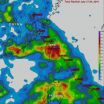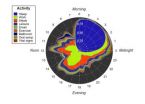(Press-News.org) Anxiety regarding inconclusive cancer screening test results among some patients is real and is only natural. However, as evidenced by Gareen et al, published July 25 in Cancer, the incidence and effects of anxiety associated with false positive or other results of computed tomography (CT) lung cancer screening exams are far less than claimed by some in the medical community.
"Unsubstantiated claims of systemic and harmful patient anxiety should now be put to rest and not continue to delay implementation of CT lung cancer screening programs or Medicare coverage for these tests. It is clear that the lifesaving benefit of these exams in high-risk patients far outweighs any downside," said Ella A. Kazerooni, MD, chair of the American College of Radiology Lung Screening Committee.
Gareen et al found that patients who had an abnormal finding on a lung cancer screening test did not experience more anxiety or reduced quality of life than those who were screened and found to be cancer-free. Imaging experts (researchers and clinicians) and allied professionals continue to work to reduce the number of false-positive exams that patients experience and ensure that follow-up exams are as minimally invasive as possible. Physicians also continue to refine the reporting process to ensure that patients receive results as quickly as possible.
Primary National Lung Screening Trial (NLST) results showed that screening high-risk patients for lung cancer using low-dose computed tomography (CT) scans significantly reduced lung cancer deaths. The test is at least as cost-effective as other major cancer screening programs and even automobile seatbelts and airbags. In December 2013, the United States Preventive Services Task Force (USPSTF) recommended annual CT lung cancer screening for high-risk patients. Under the Affordable Care Act, private insurers are required to begin covering this service starting Jan. 1, 2015. However, Medicare is not required to follow USPSTF recommendations. CMS will make its final coverage decision in February 2015.
Significant lung cancer screening infrastructure continues to grow. The College created the ACR Lung Cancer Screening Center program, to help certify that these lifesaving exams are provided in a safe, effective manner. The ACR also launched the first edition of Lung-RADS™, a quality assurance tool designed to standardize lung cancer screening CT reporting and management recommendations, reduce confusion in lung cancer screening CT interpretations and facilitate outcome monitoring.
"For the first time, we can save thousands of people each year from the nation's leading cancer killer. Medicare coverage of these lifesaving exams would provide seniors with ready access to this care and help the medical community save lives," said Kazerooni.
INFORMATION:
ACR statement on cancer study regarding patient anxiety from CT lung cancer screening
2014-07-25
ELSE PRESS RELEASES FROM THIS DATE:
Vanderbilt study examines bacteria's ability to fight obesity
2014-07-25
A probiotic that prevents obesity could be on the horizon. Bacteria that produce a therapeutic compound in the gut inhibit weight gain, insulin resistance and other adverse effects of a high-fat diet in mice, Vanderbilt University investigators have discovered.
"Of course it's hard to speculate from mouse to human," said senior investigator Sean Davies, Ph.D., assistant professor of Pharmacology. "But essentially, we've prevented most of the negative consequences of obesity in mice, even though they're eating a high-fat diet."
Regulatory issues must be addressed before ...
NSU researcher part of team studying ways to better predict intensity of hurricanes
2014-07-25
FORT LAUDERDALE-DAVIE, Fla. – They are something we take very seriously in Florida – hurricanes. The names roll off the tongue like a list of villains – Andrew, Charlie, Frances and Wilma.
In the past 25 years or so, experts have gradually been improving prediction of the course a storm may take. This is thanks to tremendous advancements in computer and satellite technology. While we still have the "cone of uncertainty" we've become familiar with watching television weather reports, today's models are more accurate than they used to be.
The one area, however, where ...
NASA maps Typhoon Matmo's Taiwan deluge
2014-07-25
When Typhoon Matmo crossed over the island nation of Taiwan it left tremendous amounts of rainfall in its wake. NASA used data from the TRMM satellite to calculate just how much rain fell over the nation.
The Tropical Rainfall Measuring Mission or TRMM satellite orbits the Earth and provides coverage over the tropics. TRMM is a satellite that is managed by both NASA and the Japan Aerospace Exploration Agency (JAXA) that acts as a "flying rain gauge in space," that can estimate how fast rain is falling within storms on Earth and how much rain has fallen.
On July 22, ...
Shift work linked to heightened risk of type 2 diabetes
2014-07-25
Shift work is linked to a heightened risk of developing type 2 diabetes, with the risk seemingly greatest among men and those working rotating shift patterns, indicates an analysis of the available evidence published online in Occupational & Environmental Medicine.
Previous research has suggested links between working shifts and a heightened risk of various health problems, including digestive disorders, certain cancers, and cardiovascular disease. But whether diabetes can be added to the list has not been clear.
The authors therefore trawled through scientific research ...
Smartphone experiment tracks whether our life story is written in our gut bacteria
2014-07-25
Life events such as visiting another country or contracting a disease cause a significant shift in the make-up of the gut microbiota – the community of bacteria living in the digestive system, according to research published in the open access journal Genome Biology.
Two participants used smartphone apps to collect information every day for a year in the study by scientists from MIT and Harvard. The authors think the method could be rolled out to studies of human-bacteria relationships with many more participants.
Our microbiota is the community of bacteria that share ...
Leaf-mining insects destroyed with the dinosaurs, others quickly appeared
2014-07-25
After the asteroid impact at the end of the Cretaceous period that triggered the dinosaurs' extinction and ushered in the Paleocene, leaf-mining insects in the western United States completely disappeared. Only a million years later, at Mexican Hat, in southeastern Montana, fossil leaves show diverse leaf-mining traces from new insects that were not present during the Cretaceous, according to paleontologists.
"Our results indicate both that leaf-mining diversity at Mexican Hat is even higher than previously recognized, and equally importantly, that none of the Mexican ...
Monitoring the rise and fall of the microbiome
2014-07-25
CAMBRIDGE, MA -- Trillions of bacteria live in each person's digestive tract. Scientists believe that some of these bacteria help digest food and stave off harmful infections, but their role in human health is not well understood.
To help shed light on the role of these bacteria, a team of researchers led by MIT associate professor Eric Alm recently tracked fluctuations in the bacterial populations of two research subjects over a full year. The findings, described in the July 25 issue of the journal Genome Biology, suggest that while these populations are fairly stable, ...
Atomic structure of key muscle component revealed in Penn study
2014-07-25
VIDEO:
This is a representation of the atomic structure of tropomodulin at the minus end of the actin filament in muscle sarcomeres. Tropomodulin interacts with the first three actin subunits of...
Click here for more information.
PHILADELPHIA - Actin is the most abundant protein in the body, and when you look more closely at its fundamental role in life, it's easy to see why. It is the basis of most movement in the body, and all cells and components within them have the capacity ...
Increased risk for head, neck cancers in patients with diabetes
2014-07-25
Diabetes mellitus (DM) appears to increase the risk for head and neck cancer (HNC). Evidence suggests certain cancers are more common in people with DM, but the risk of HNC in patients with DM has not been well explored. Overall, head and neck cancer is the sixth most common type of cancer. It accounts for about 6 percent of all cases and for an estimated 650,000 new cancer cases and 350,000 cancer deaths worldwide each year.
The authors used Taiwan's Longitudinal Health Insurance Research Database to examine the risk of HNC in patients with DM. The authors compared 89,089 ...
8.2 percent of our DNA is 'functional'
2014-07-25
Only 8.2% of human DNA is likely to be doing something important – is 'functional' – say Oxford University researchers.
This figure is very different from one given in 2012, when some scientists involved in the ENCODE (Encyclopedia of DNA Elements) project stated that 80% of our genome has some biochemical function.
That claim has been controversial, with many in the field arguing that the biochemical definition of 'function' was too broad – that just because an activity on DNA occurs, it does not necessarily have a consequence; for functionality you need to demonstrate ...



